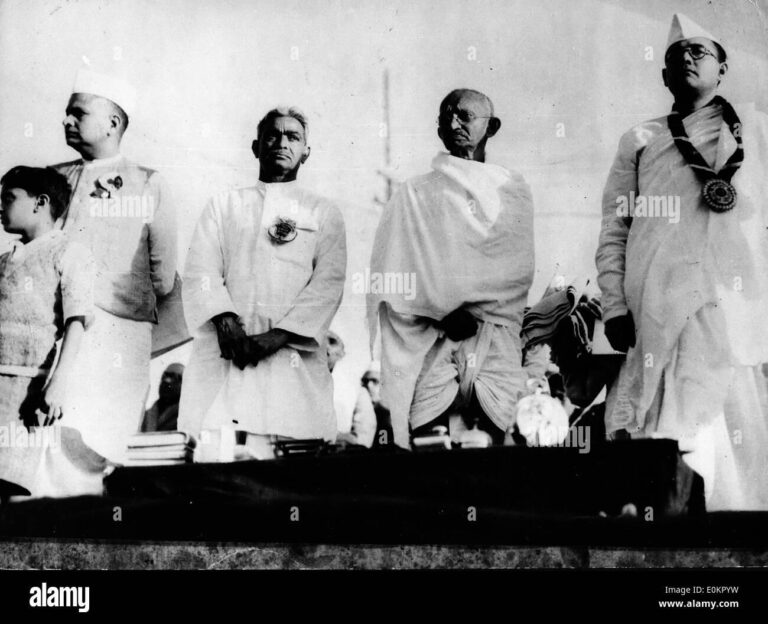The Indian National Congress (INC), one of the oldest and most influential political parties in India, has played a pivotal role in shaping the nation’s history and democratic framework. Founded in 1885, the party spearheaded India’s struggle for independence under the leadership of iconic figures such as Mahatma Gandhi, whose philosophy and strategies left an indelible mark on the country’s political landscape. Over the decades, the Congress has evolved, navigating complex ideological shifts and electoral challenges while producing a roster of prominent leaders and presidents. This article explores the rich history, foundational ideology, key personalities, electoral journey, and significant milestones of the Indian National Congress, providing a comprehensive overview of its enduring legacy in Indian politics.
Origins and Early Years of the Indian National Congress
Established in 1885, the Indian National Congress (INC) emerged as a platform for Indian leaders seeking greater participation in governance under British rule. Initiated in Bombay by Allan Octavian Hume, a retired British civil servant, the INC aimed to create a forum for civil and political dialogue among Indians from diverse regions and backgrounds. Early sessions highlighted concerns such as administrative reforms, better representation of Indians in the civil services, and economic interests affected by colonial policies. The party attracted a varied membership, including lawyers, academics, and landlords, united by the goal of reform rather than outright independence at the outset.
Key characteristics of the early INC:
- Moderate Leadership: Figures like Dadabhai Naoroji and Gopal Krishna Gokhale advocated constitutional methods and dialogue with British authorities.
- Demands for Administrative Inclusion: The INC sought increased Indian representation in legislative councils and the civil service.
- National Integration: Efforts were made to bridge regional and communal divides, fostering a sense of pan-Indian identity.
- Annual Sessions: Meetings rotated among different cities, enhancing reach and participation.
| Year | President | Session City | Main Resolution |
|---|---|---|---|
| 1885 | W.C. Banerjee | Bombay | Request for greater legislative involvement |
| 1886 | Dadabhai Naoroji | Kolkata | Economic reforms to address exploitation |
| 1890 | W.C. Banerjee | Mumbai | Expansion of Indian civil services roles |
Evolution of Ideology and Key Political Contributions
From its inception in 1885, the Indian National Congress transformed from a platform of elite moderates seeking incremental reforms into a mass movement advocating for complete self-rule. This evolution was marked by a gradual but definitive shift in ideology-from constitutional diplomacy and petitions under early leaders like Womesh Chunder Bonnerjee, to a more assertive and inclusive nationalism under figures such as Bal Gangadhar Tilak. By the early 20th century, the party embraced Swaraj (self-rule), social justice, and economic nationalism, reflecting the diverse aspirations of the Indian populace.
Key political contributions of the Indian National Congress can be categorized into pivotal campaigns and transformative leadership eras:
- Non-Cooperation Movement (1920-22) – Mobilized millions under Mahatma Gandhi’s leadership, emphasizing nonviolent resistance.
- Civil Disobedience Movement (1930-34) – Marked by the iconic Salt March, challenging colonial economic controls.
- Quit India Movement (1942) – A decisive call for British exit, showcasing Congress’s resolve despite severe repression.
- Post-Independence Nation-building – Under leaders like Jawaharlal Nehru, Congress laid the groundwork for India’s democratic institutions and socio-economic policies.
| Era | Ideological Shift | Notable President |
|---|---|---|
| 1885-1905 | Moderate Reformism | W.C. Bonnerjee |
| 1905-1919 | Militant Nationalism | Bal Gangadhar Tilak |
| 1919-1947 | Mass Mobilization & Nonviolence | Mahatma Gandhi |
| 1947-Present | Democratic Consolidation & Socialism | Jawaharlal Nehru |
Impact of Gandhi and Leadership in Shaping Modern India
Mohandas Karamchand Gandhi’s philosophy radically altered the landscape of political leadership in India, propelling the country towards independence through nonviolent resistance and civil disobedience. His approach not only galvanized millions across diverse social strata but also introduced a moral dimension to political struggle, emphasizing truth (Satyagraha) and self-discipline. This transformative leadership inspired the Indian National Congress to adopt strategies that were inclusive and mass-driven, ultimately redefining the party’s role from elite governance to representing the voice of the common people. Gandhi’s emphasis on simplicity, rural empowerment, and indigenous industries reshaped India’s socio-economic priorities, leaving an indelible mark on the nation’s developmental trajectory.
The ripple effects of Gandhi’s leadership endure in contemporary Indian politics, influencing leadership styles and policies long after his passing. His legacy is visible in the Congress party’s commitment to democratic values and social justice, driving movements that challenge inequality and promote secularism. Key elements of his leadership include:
- Nonviolence as Political Strategy: Transforming activism into a tool that resonated globally
- Mass Mobilization: Engaging millions beyond elite political circles
- Ethical Governance: Prioritizing morality in public life
- Decentralization: Focusing on village self-reliance and grassroots democracy
| Leadership Aspect | Impact on Modern India |
|---|---|
| Nonviolent Protest | Inspired global civil rights movements |
| Inclusive Politics | Strengthened democratic participation |
| Rural Empowerment | Boosted focus on agricultural reforms |
| Ethical Governance | Embedded moral accountability in leadership |
Closing Remarks
As one of India’s oldest and most influential political parties, the Indian National Congress has played a pivotal role in shaping the nation’s history and democratic landscape. From its founding ideals and the leadership of iconic figures like Mahatma Gandhi to its evolving ideological stance and participation in numerous elections, the Congress remains a key player in Indian politics. Understanding its rich legacy and ongoing journey offers valuable insight into the broader narrative of India’s political evolution. For more detailed information, Britannica continues to provide comprehensive coverage of the Indian National Congress and its enduring impact.




